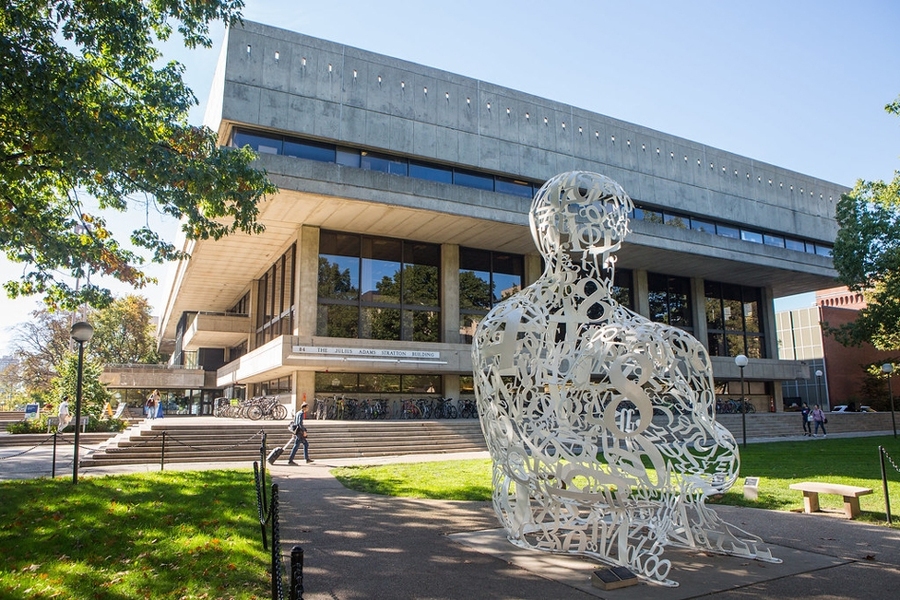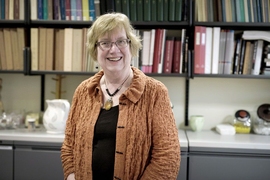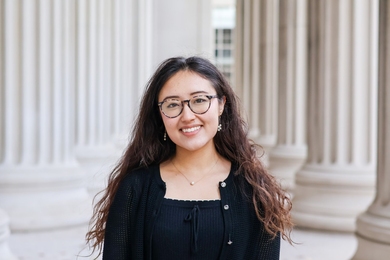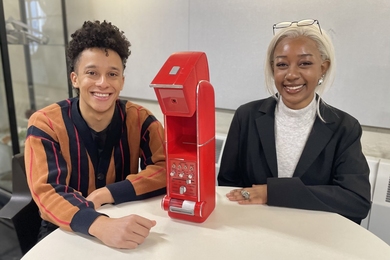MIT has launched the latest iteration of its Quality of Life Survey, a major project to solicit feedback from students, staff, and faculty about a full range of campus issues, from social concerns to academic and workplace matters. Overseen by the MIT Council on Family and Work and by MIT Institutional Research, the 2020 edition is the first to simultaneously generate feedback from students, faculty, and staff; previously, separate surveys had been developed for different campus groups.
MIT News talked with three leaders who are helping to run the 2020 Quality of Life Survey: Amy Glasmeier, a professor in the Department of Urban Studies and Planning and co-chair of the MIT Council on Family and Work; Ken Goldsmith, assistant dean for finance and planning in the School of Architecture and Planning and co-chair of the MIT Council on Family and Work; and Lydia Snover, director of MIT Institutional Research.
Q: What is the Quality of Life Survey?
Goldsmith: It’s a barometer of the satisfaction people have at MIT within the context of their lives. It’s a way of seeing what is impacting people’s lives. Ultimately our job is to look at the data and determine whether there are measures we can take at MIT to address these areas that need attention.
Glasmeier: The most basic questions are completely relevant to everyone, including faculty, staff, and students. They’re about friendships at work and among students, about having access to the resources you need to do your job well, about feeling appreciated by the people you work for, and if you feel appreciated by the people who are working around you.
Snover: Initially the surveys were really about child care. But it’s gone beyond that because not everybody has children at home. And child care quickly brought up issues of elder care. … We ask questions about whether people feel comfortable. We’re very concerned about whether people have inclusive work and learning environments. There are questions on gender identity, sexuality, disability, and more that will allow us to better understand issues pertaining to these unique groups. Ultimately the survey explores the intersection of work and nonwork life and how one affects the other.
Glasmeier: When we finish, we will have results that will inform the kinds of experiences and benefits that MIT can offer for people here. The results will be used to understand how people do their work and manage their studies, what obstacles might prevent them from thriving, and what opportunities empower them to do their best. For example, in 2016, we were interested in the flexibility people wanted to have in executing their work, and the extent to which they had that. As a result we did experiments, and in different parts of the Institute people can now work in a flexible work environment and not have to negotiate it in a complex way.
Q: What measures does the Institute take to address issues of privacy and security for respondents?
Snover: The Institutional Research office has the ultimate responsibility for the data coming from the community’s responses. The data is securely stored and is only accessed by very experienced analysts with training for research involving human subjects. All results are initially reported by Institutional Research staff in a way that protects the confidentiality of the individual. People who subsequently use the data only have access to aggregate results. There are several open-ended questions on the survey, and respondents are informed those comments will be read verbatim and are advised not to include any identifying information. We are often told that people worry that their supervisor, department head, or senior officer will have access to their individual responses. They will not. No individual responses become part of anyone’s permanent record.
Goldsmith: Confidentiality is a hot-button item, and we can’t stress enough that the Office of Institutional Research is a lockbox for that information.
Snover: We’re committed to transparency in the results, but we’re equally committed to confidentiality for the respondents.
Q: What happens when the period for answering the Quality of Life Survey is finished?
Glasmeier: We’re going to write short analysis papers that summarize the results. These will address specific concerns and experiences people have here. … We work with the MIT Work-Life Center and MIT Human Resources, and they are policy designers and implementers. So far we’ve been very successful at incorporating change into the kinds of benefits or experiences people have.
The postdoc program that exists now in the Office of the Vice President for Research is a very good example. They [postdocs] were really frank about what it’s like to be here, [the struggle to] afford child care, and everything else. Previous surveys have shown the same results, and these issues have been taken seriously and incorporated into the [Postdoctoral Services] programming in the Office of the Vice President for Research.
Goldsmith: The Council on Family and Work is looking at the whole community. There are segments within that community — postdocs, women faculty, junior faculty, junior women faculty, and more — that are examples of areas we want to focus on and respond to. The survey population includes Lincoln Laboratory as well as employees on campus. We feel strongly about hearing from as many people as possible.
Glasmeier: We have been visiting as many groups on campus as possible, including the graduate student council, undergraduates, the Dean’s Group, the Working Group on Support Staff Issues, and individual senior officers, and we’re really encouraged. There is a strong interest in knowing how people in the MIT community feel about their work and their lives outside of work. MIT is a great place, but every place can always improve.










